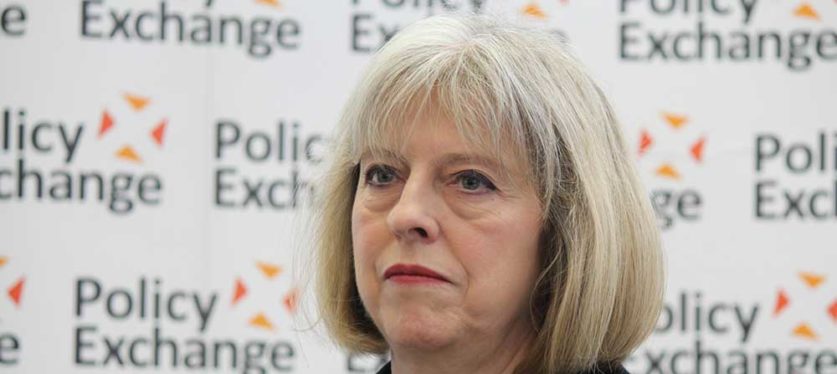
The chief executive of a UN’s Sustainable Energy for All Initiative has warned that newly appointed Prime Minister Theresa May must take action to increase the UK government’s commitment to fighting climate change.
Rachel Kyte, speaking before Theresa May took the helm of the British government, urged the UK government not to take the foot off the pedal in terms of working towards various climate targets.
She said that, while May certainly has a lot on her plate at the moment, the UK is in a position to play a key role in decarbonising globally, and impressed the wide reaching importance of fulfilling this role.
Speaking to the Guardian, she said: “just because 52% of the population voted in a referendum to leave that doesn’t mean that we throw out our plans for growth and development, [including] commitment to a greener growth which benefits poorer people as much s it does the rest of the country.”
Since a lot of the UK’s climate targets and requirements are tied to EU-wide policy, question marks were raised over continued commitment to them following the vote to leave. However, former Energy Secretary (now Home Secretary) Amber Rudd, as well as representatives within the EU and the UN assured that commitments remain unchanged, regardless of EU membership.
As Kyte explained, it is important not to lose sight of the internationally established aims and targets regarding climate change, and even more important not to stymie progress towards them.
She said: “We have got urgent, disciplined, focused business to do, to ratify Paris, and to drive greener growth. Any government has to be focused on making sure that growth is greener, and cleaner, and doesn’t leave anybody behind.”
Among the most important tasks for the government now is to create a climate of certainty within which renewable firms can flourish and climate targets can be reasonably worked towards.
“For any government in charge,” she said, “just creating certainty is what’s going to be important for those kinds of initiatives to flourish.”
While May has not yet spoken directly about her future energy policy, she has merged the Department for Energy and Climate Change with the Department for Business, Innovation and Skills, creating the new Department for Business, Energy and Industrial Strategy that will be headed up by Greg Clark, former Secretary of State for Communities and Local Government. Sajid Javid, for Business Secretary, will now head the Department for Communities and Local Government.
This merging of the two departments may signal a new approach towards energy policy focused more on business and investment.
Richard Black, the director of the Energy and Climate Intelligence Unit, praised the move and the appointment of Greg Clark to run it.
“Importantly, he said, “[Clark] sees that economic growth and tackling climate change are bedfellows, not opponents – and he now has the opportunity to align British industry, energy and climate policy in a way that’s never been done before.”
Critics are concerned, however, given May’s voting record, that it is more likely to signal a reduction in focus on environmental issues.
May has voted fairly consistently in favour of plans to sell off England’s state owned forests – plans that were ultimately scrapped by the Government. She has also generally voted against various measures designed to tackle climate change, including voting against annually reviewed decarbonisation targets and against requiring a carbon capture and storage strategy.
She has also voted against increased regulation on fracking, a vote against the need for fracking companies to obtain environmental permits for their work.
The Green Party’s Caroline Lucas expressed concern about May’s decision. She said: “The decision to shut down DECC is a deeply worrying move from Theresa May. Climate change is the biggest challenge we face, and it must not be an afterthought for the Government.
“Dealing with climate change requires a dedicated Minister at the Cabinet table. To throw it into the basement of another Whitehall department looks like a serious backwards step.
“In the coming months I will work constructively with any Minister willing to take climate change seriously, and I’ll be holding the Government to account for any backpeddling on our climate change commitments.”
Meanwhile, Andrea Leadsom, whose exit from the Prime Ministerial race allowed May to enter unopposed, has been appointed as the Secretary of State for Environment, Food and Rural Affairs (Defra).
Defra is “responsible for safeguarding our natural environment, supporting our world-leading food and farming industry, and sustaining a thriving rural economy”.
As such, Leadsom will likely play a lead role in renegotiating regulations governing farming and agriculture once Article 50 is triggered, as much of the UK’s agricultural legislation is bound to EU policy at the moment.
Leadsom, who previously held a ministerial position in the DECC, has been criticised for a statement made last year when she said that one of her first questions upon entering the job was “‘is climate change real?’”. She did then go on to say that on this question, and on the question of the safety of fracking, “I am now completely persuaded”. She did not say exactly what answer she was completely persuaded on, but one can assume she does now believe in climate change and, based on her voting record and on her plea for people to “not be browbeaten by fracking scaremongering” that she does believe fracking to be a safe technology.
The Committee on Climate Change recently released a report on the fracking industry arguing that, subject to certain increased regulation, fracking could be made viable and safe, at least in terms of adherence to the UK’s emission reduction targets.




